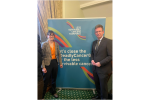
Whether you refer to it as Freedom Day or not, Monday undoubtedly marked a significant step in the removal of restrictions caused by COVID-19. Although I recognise that this a concerning change for some, it is welcome for many and on balance I think it is the right one. Assuming restrictions are not to continue indefinitely, the argument that the inevitable increase in cases caused by greater mixing is best managed in summer not winter is strong, given the extra pressure we expect the NHS to be under this winter. We are also no longer defenceless against the virus, with better treatments and crucially of course a highly effective vaccination programme. 88% of adults in Kenilworth and Southam have received at least one vaccine dose and there are 10 times fewer COVID patients in hospital than with a similar number of cases in January. Before we had vaccinated so extensively, beginning with those most likely to be made seriously ill by the virus, it was fair to base policy almost entirely on the need to reduce transmission. With extensive vaccination, other factors must be given greater weight, including the physical and mental health of those for whom COVID-19 is not their greatest challenge, and the survival of large parts of our economy for which a return to physical interaction is essential.
Of course, the pandemic is not over and neither is our response to it. I arrived in Westminster on Monday on a Chiltern train and then a tube train, on both of which passengers were asked to wear a mask in consideration of others and the vast majority did so. Although this is the last step on the Government’s roadmap, the world was never going to change overnight in every respect. What has changed is the expectation that we take sensible precautions against COVID-19 because we know it is sensible, rather than because it is the law, and there is a danger that in nearly 18 months of compulsion we have forgotten that our society has always been ordered in large part by our willingness to be considerate of others, even without legal sanction. Perhaps we have forgotten too that, pre-COVID, daily life was never free of risk. At the peak of the 2017-18 flu season for example, there were more deaths than are predicted for this summer’s wave of COVID infections, but no restrictions were imposed. We have been told COVID will not disappear entirely but must be managed. We either do that by expecting personal responsibility, which most will exercise, or by ongoing legal restrictions which over time diminish not just our freedoms but also our capacity to exercise good judgment for ourselves, and that may have even wider consequences.

